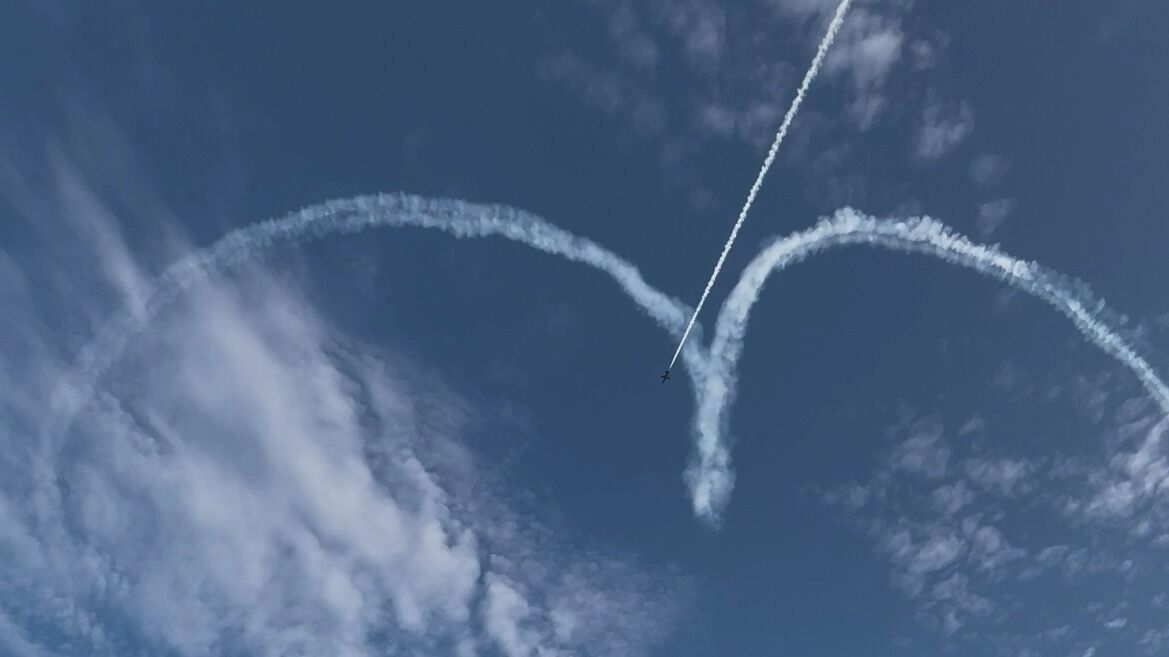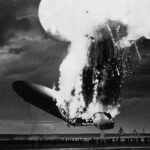On Saturday, August 2nd, the roar of airplane engines filled the skies over Kazan, and no one was frightened. People are made to shudder by other things. Here’s what they are.
“One Big Raisin”: Demonstration Flights Over Kazan
On Saturday, August 2nd, Kazan hosted the traditional aviation festival “I Choose the Sky!” Notably, since the beginning of the SMO, even when Ukrainian drones began reaching Tatarstan, the event was never canceled. However, security measures have been strengthened year after year. At one point, the republic’s Ministry of Industry and Trade stated that aviation is one of the most important industrial sectors in Tatarstan, which is why the ministry is involved in organizing the festival—clearly not its usual line of work. Another “star” of “I Choose the Sky!” is the Kazan Aviation Institute, which strives to instill a love of aviation in the younger generation.
This year, the event was sold out despite the heat. The most spectacular moment of the airshow was, of course, the performance by the aerobatic team “Rus.” The most anticipated part was the flight of the Tu-214 passenger plane over the Kazanka River—assembled at the Kazan Aviation Plant—and the “White Swan” bomber, also produced in the capital of Tatarstan. The managing director of Tupolev noted that every city with a developed aviation industry has its own highlight, but in Tatarstan, “it’s not a highlight, it’s one big raisin.” Given how many times the Tu-214 has been delivered to airlines, no better comparison than dried grapes could be made.
Utility tariffs increased starting July 1st. On average across Russia, the rise was 11.9%. In Kazan, it was 22.3%. Residents of Tatarstan’s capital have begun receiving their first bills under the new rates. And though people were warned and prepared for the upcoming cost-of-living increase, they were still shocked. Readers report that monthly payments have risen by 20%. They now anxiously await what amounts they will face in winter when heating costs are added.
The current tariff system will remain in place until next July. It has already been suggested that in 2026, tariffs could rise by another 10%. A similar increase is expected nationwide. However, a State Duma deputy offered Russians some hope, stating that further tariff hikes would not be as noticeable and would not exceed 8% on average across the country.
Since 2024, several Russian regions have practiced fining people for reporting the flight of enemy drones or the aftermath of their attacks. Authorities have the power to impose fines, but it is not frequently used. Cases are known in the Kaluga region, where residents were penalized for commenting on drone attacks on social media and sharing videos of the aftermath.
Media reports suggest a similar practice could be introduced in Tatarstan, though the republic’s State Council insists no such bills are under consideration. Likely, none will exist until law enforcement agencies clarify their stance on the issue.
Kazan
Kazan is the capital of Tatarstan, Russia, and one of the country’s oldest cities, founded over 1,000 years ago. It is known for its rich cultural blend of Tatar and Russian influences, symbolized by landmarks like the Kazan Kremlin, a UNESCO World Heritage Site that includes the Qolşärif Mosque and the Annunciation Cathedral. The city is also a major economic, educational, and sports hub, famously hosting the 2013 Universiade and 2018 FIFA World Cup.
Kazan Aviation Institute
The Kazan Aviation Institute (KAI), now known as Kazan National Research Technical University (KNRTU-KAI), was founded in 1932 as a leading center for aerospace engineering in Russia. It played a key role in training specialists for the Soviet aviation industry and contributed to advancements in aircraft and rocket technology. Today, it remains a prestigious technical university, offering programs in aviation, engineering, and IT while maintaining strong ties to the aerospace sector.
Kazanka River
The Kazanka River is a tributary of the Volga River, flowing through the Republic of Tatarstan in Russia. It is historically significant as it runs through the capital city of Kazan, playing a key role in the region’s trade and cultural development. The river is also known for its scenic beauty and landmarks, such as the Kazan Kremlin, a UNESCO World Heritage Site located near its banks.
Kazan Aviation Plant
The Kazan Aviation Plant, founded in 1932 in Kazan, Russia, is one of the country’s oldest and most significant aircraft manufacturing facilities. It played a key role in producing military aircraft during World War II, including the Pe-2 bomber, and later specialized in manufacturing heavy transport planes like the Tu-160 strategic bomber. Today, it remains a major center for aircraft production and modernization under the United Aircraft Corporation.
Tupolev
The Tupolev Design Bureau, founded in 1922 by Soviet aerospace pioneer Andrei Tupolev, is a renowned Russian aircraft manufacturer known for producing iconic military and civilian planes, such as the Tu-95 bomber and the Tu-144 supersonic jet. Over its century-long history, Tupolev has played a key role in advancing aviation technology, particularly during the Cold War, and remains influential in aerospace engineering today.
Tu-214
The Tu-214 is a modern Russian twin-engine jet airliner developed by Tupolev, first introduced in the 1990s as an upgraded variant of the Tu-204. Designed for medium-haul flights, it is used for both passenger and cargo transport, featuring improved fuel efficiency and avionics. While not as widely recognized as Western counterparts, it represents Russia’s aerospace industry and is primarily operated by government and specialized airlines.
White Swan
The White Swan Hotel, located in Guangzhou, China, is a renowned luxury hotel that gained international fame in the 1980s and 1990s as a preferred accommodation for Western diplomats, business travelers, and adoptive families completing U.S. adoptions of Chinese children. Opened in 1983, it was one of China’s first five-star hotels and became a cultural landmark, symbolizing the country’s economic reforms and opening-up policy. Though it underwent a major renovation from 2012 to 2015, the White Swan remains an iconic symbol of Guangzhou’s hospitality and modernization.
State Duma
The State Duma is the lower house of Russia’s Federal Assembly, serving as one of the country’s primary legislative bodies. Established in 1906 under the Russian Empire, it was disbanded after the 1917 Revolution and reinstated in 1993 following the adoption of Russia’s post-Soviet constitution. Today, it plays a key role in passing federal laws, though its authority is limited by the dominance of pro-government parties.






